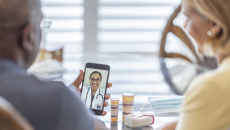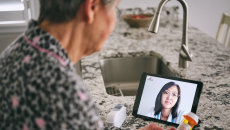Anthony Vecchione
Lark's cardiometabolic care coaching programs will be made accessible through CVS Caremark's Point Solutions Management program.
The projects will make use of genome sequencing data for more personalized, preventative and cost-effective healthcare.
The new feature allows clinicians to speak their prescription orders to Suki, which then structures, codes and stages the order.
Noom teams up with LillyDirect pharmacy provider Gifthealth to offer access to single-dose vials of Zepbound.
The app allows users to self-reflect via text, voice, image or video.
The company will use the funds for AI research and to advance its programs in clinical development.
CZ Biohub San Francisco and CZ Institute for Advanced Biological Imaging join forces to form a new Biohub.
Validic partners with Person Family Medical Center to promote heart health, and Hazel Health provides mental health services to North Carolina students.
The partnership will give customers easy access to GLP-1 class drugs and other anti-obesity medications.









